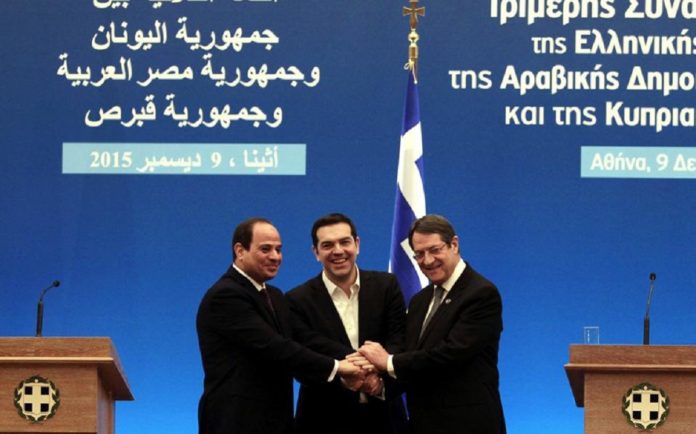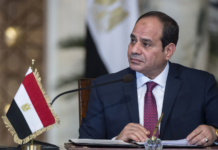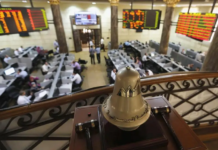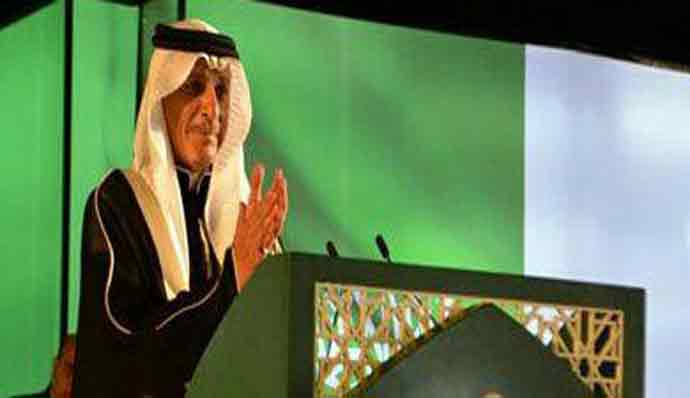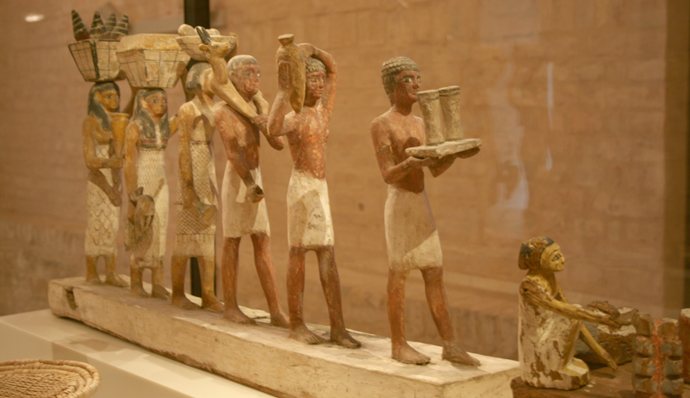Last week, the agreement for constructing a sub-marine cable connecting Egypt to Cyprus for exporting Egyptian electricity to Europe was launched.
The project is of a huge strategic value due to its economic, political, geographic and international relations impact. In this article we will tackle what the project is, its purpose and timetable, and most importantly how Egypt turned from deficit to surplus and then exporting in a few years.
The project memorandum of understanding was signed in Cairo, February 2017. The agreement was signed on the project on November 2017 and work on the project launched this month.
The project’s line extends from Egypt to Cyprus, Crete, Greece and Europe, with the length of the line 1700 km and is expected to be the longest line of its kind in the world, with the depth of the line 3000 meters below sea level.
The project’s line between Egypt and Cyprus costs are estimated at 3.5 billion euros. With a capacity of 2000 megawatts, the line is capable of feeding the electricity needs of cities the size of Berlin and Madrid put together.
Nassoos Caturides CEO of the executing company of the line says: “The Egyptian, Greek, and Cypriot partnership and alliance continues to grow and depends on a policy of mutual benefit”
The source of Egyptian electricity destined to export its surplus to Europe will come from the Renewable power stations (solar and wind) which are currently being developed and growing at a sustainable proportionate, as Egypt is one of the highest countries in the world that have recently developed and inaugurated these stations. Along with, the recently discovered gas fields, especially ZOHR field, from which a large proportion of gas will represent a main resource for this project, as well as, the main resource for the Egyptian power plants and finally, Al-Dabaa nuclear station “in the Future”.
This mix of gas discoveries, renewable energy and Dabaa’s nuclear stations are expected to produce enough electricity that can provide self-sufficiency within Egypt as well as achieve a surplus that can be exported.
The implementing company of the project has estimated an average of 10 billion euros as revenues forecasted to partner countries.
This agreement serves Europe, as even though Europe has the option of importing cheap Russian gas, it needs to diversify its energy sources. Relying on this newly established line will serve its security, especially after the latest tense relations between Europe and Russia since the crisis in the Crimea and Ukraine. On the other hand, Egypt is the closest geographical positioned country to Europe, characterised by the following specifications: Sun brightness most of the year (Allowing for a sustainable source of Solar energy), the recent huge gas discoveries, agreement of foreign policies set forward in light of this long term project between Egypt and Europe which is reflected through Europe’s interest in the Egyptian economic reform program aiming for lower risks within the Egyptian economy and a sustainability that paves the way for a long-term stability in Egypt and accordingly energy security for Europe.
About 50% of European energy needs are imported from outside Europe at an estimated value of One Billion Euros daily, worth of energy resources that range from oil and gas to nuclear energy.
Studies on this project started in 2012, yet during this time Egypt had political and economic instability due to lack of electricity services, blackouts and weak electricity production due to a deficit in imports and inability to sustain market requirements. In the second half of 2012, chaos and the poor state of electricity stations continued, when the former President Mohamed Morsi assumed presidency. Yet, having a special relationship with Turkey, the leadership could not proceed with such an agreement since Cyprus and Greece are at odds with Turkey, and this historic opportunity for Egypt was missed because of the unwillingness of the Egyptian leadership “at the time” to anger Turkey, the first ally of the Egyptian regime at the time.
The project came into light with the new leadership’s political will to achieve a cohesive and constructive relationship that benefits Europe and Egypt.
The project is supervised, managed and supported by the EU Commission and supply of Egyptian electricity to Europe is expected to begin in 2021, ie, within only 3 years from now.
Based on the above, this project is the second Egyptian strategic project to be launched within one month and be linked to Europe.
The project is strategic, ambitious and has very positive impacts to all partners added to the growing partnerships between Cairo and the European Union, as well as, implementing Egypt’s economic reform program and sustainable growth.


